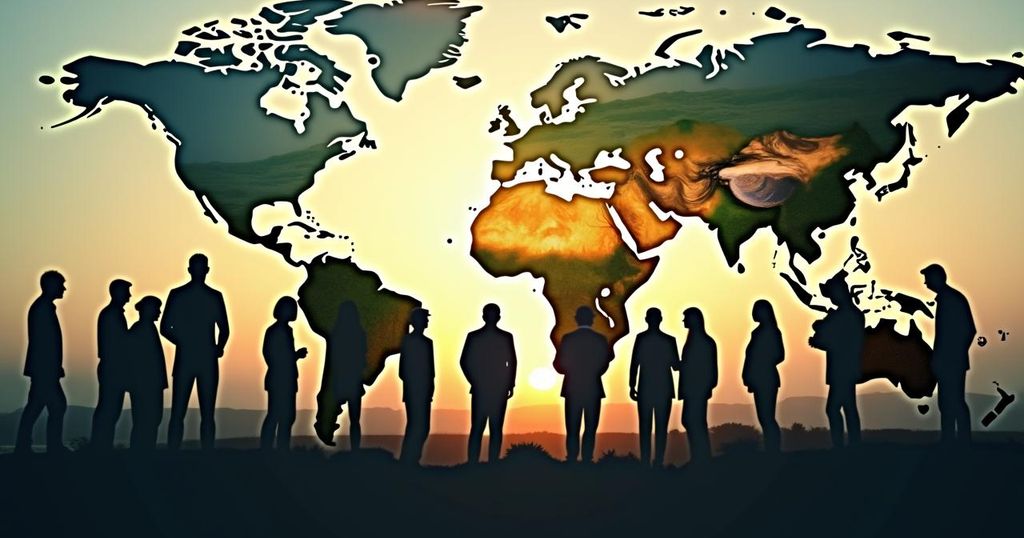COP29 negotiations are gearing up to address the critical issue of climate finance for developing nations, with a looming debate over which countries should contribute. Developing nations need trillions for climate action, excessively relying on traditional donors, predominantly wealthy nations. Calls for emerging economies like China to contribute are causing contention, complicating the talks ahead. The existing financial commitments fall short, with developing countries demanding vastly increased funding to address urgent climate challenges.
As the COP29 climate conference approaches, significant tensions are emerging surrounding the financial responsibilities of both wealthy nations and emerging economies in aiding the developing world combat climate change. The developing nations require substantial financial assistance, estimated in the trillions of dollars, to mitigate carbon emissions and adapt to climate impacts. Currently, a $100 billion annual fund is primarily supported by historically wealthy and industrialized nations such as the United States, Canada, and the European Union. While these countries acknowledge the necessity for increased financial support, they are advocating for the inclusion of newly prosperous nations, particularly China, which is currently the largest emitter of greenhouse gases but was traditionally regarded as a developing nation. This push has generated controversy, with opposing views among developed and developing countries. Delegates from developed nations are calling for a reassessment of contributors based on contemporary economic realities, suggesting that nations with greater capabilities should participate. In contrast, developing nations maintain that funding responsibilities rest on the historical context of emissions and wealth. They assert that the 2015 Paris Agreement mandates developed countries to uphold their obligations towards climate finance. The ongoing debates emphasize concerns regarding the adequacy of financial commitments, with developing nations demanding upwards of $1 trillion annually for adaptation and green energy projects. Though some progress has been noted, particularly in negotiations between the United States and China, a formal expansion of the donor list is considered unlikely. However, there may be opportunities for voluntary contributions from nations willing to support the collective climate finance goal.
The upcoming COP29 climate conference is set against a backdrop of intense discussions about climate finance—a critical issue for developing nations striving to address the challenges posed by climate change. Historically, financial assistance for climate initiatives has predominantly come from wealthier nations that were major industrial polluters, as established during the creation of the UN climate framework in 1992. This framework designated responsibility for funding climate actions to developed countries, acknowledging their historical contributions to global warming. In recent years, however, some developing nations have seen increased economic growth and emissions, raising questions about their potential financial contributions to climate efforts. The evolving discourse around who should be responsible for climate finance is integral to the negotiations at COP29, as countries grapple with the moral and practical implications of funding climate resilience and adaptation in the most vulnerable regions. Furthermore, the negotiations are ongoing in a context where climate impacts are increasingly felt globally, amplifying the urgency for substantial financial commitments.
In summary, the impending COP29 conference is shaping up to be a pivotal moment in the discourse around climate finance, particularly concerning the obligations of both developed and emerging economies. As developing nations advocate for substantial financial support to combat climate change, powerful debates are taking place over the equitable distribution of funding responsibilities. The possibility of a broadened donor base faces resistance, highlighting the complexities of historical emissions and economic evolution. Significant progress remains to be made to ensure that the voices and needs of the world’s most vulnerable nations are adequately addressed in the climate finance landscape at COP29 and beyond.
Original Source: www.france24.com






